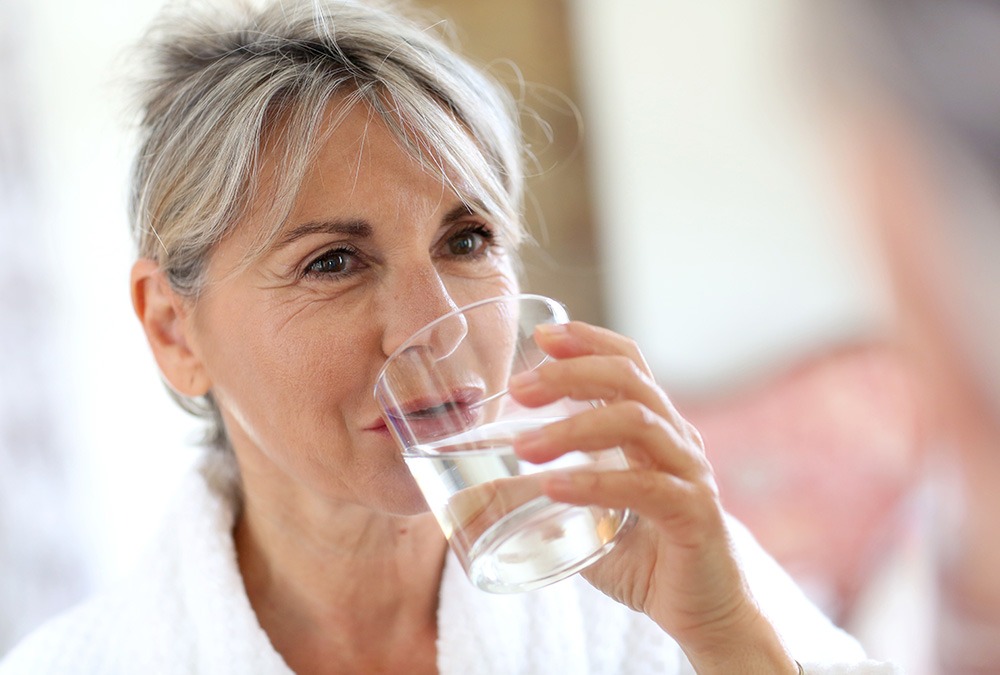Mon - Fri 9.00 - 17.00
Call us +1 (888) 825-9321

When it comes to weight loss, sometimes it pays to use more brains than brawn.
Take the act of consuming water. Did you know that it can actually help you keep the weight off?

Common wisdom has long held that consuming water is beneficial for weight loss. In fact, this benefit was (and is) one of the reasons for the popularity of the eight glasses per day movement.
Luckily, when it comes to discussing the link between water consumption and weight loss, we don’t actually need to rely on common wisdom alone.
That’s because the latest scientific knowledge affirms it too.

Brenda Davy, associate professor at Virginia Tech’s College of Agriculture and Life Sciences authored a study on the effects of water on weight loss.
The study was conducted over the course of 12 weeks and included 48 adults (55-75 years old), divided into two groups.
One group drank 2 cups of water prior to their meals while the other did not, and all the subjects ate a low-calorie diet during the study.

It’s forgivable to believe that—when it does come time for putting in the exercise to aid weight loss—sports drinks are the end all be all for all things performance-related.
This is actually a (quite effective) myth—shout out to mass marketing machines like Gatorade. Despite the hype, this is why you’re better off consuming water pre, during, and post workout:
Even besides the points listed above, common sense tells us that sports drinks are by and large superfluous.
Just think about it:
Gatorade—the grandfather of today’s modern bevy of sports beverages— has only been around since the 1960s. Prior to this time, water sufficed for hydrating everyone from Olympic athletes to professional athletes to military personnel in strenuous field conditions.
Take that mass marketing.

So, how much water should you actually drink per day? Does the old “8 glasses per day still hold true?” There’s actually no universally-accepted figure for how much water people should be drinking daily. Turns out thirst is the best barometer, according to an article citing The Institute of Medicine (which advises the Federal Government on scientific matters such as these).
What about your amount of daily fluid intake in general? For healthy adults living in a temperate climate, The National Academies of Sciences, Engineering, and Medicine says:
(Note that these recommendations cover fluids from water, other beverages, and food. Also, about 20% of our daily fluid intake usually comes from food).
However despite these guidelines, and no matter how thirsty you may get, you should never overdo your water intake.
Here’s why.

Yes, this article is pro water: H2O is critical for sustaining life, facilitating weight loss, and athletic performance. However, this doesn’t mean that it’s impossible to overdo it. People with certain health conditions can put themselves at risk of complications if they drink too much water, such as those with heart conditions, high blood pressure, and/or kidney problems.
“If you have a history of kidney problems, especially if you have had a transplant, consult your doctor before increasing your fluid intake,”
Amy Hess-Fischl, RD, CDE, of the University of Chicago Kovler Diabetes Center, advises.
Finally, (while this may seem counterintuitive) you shouldn’t drink too much water while eating, as doing so dilutes your stomach acid and can even lead to digestion problems.